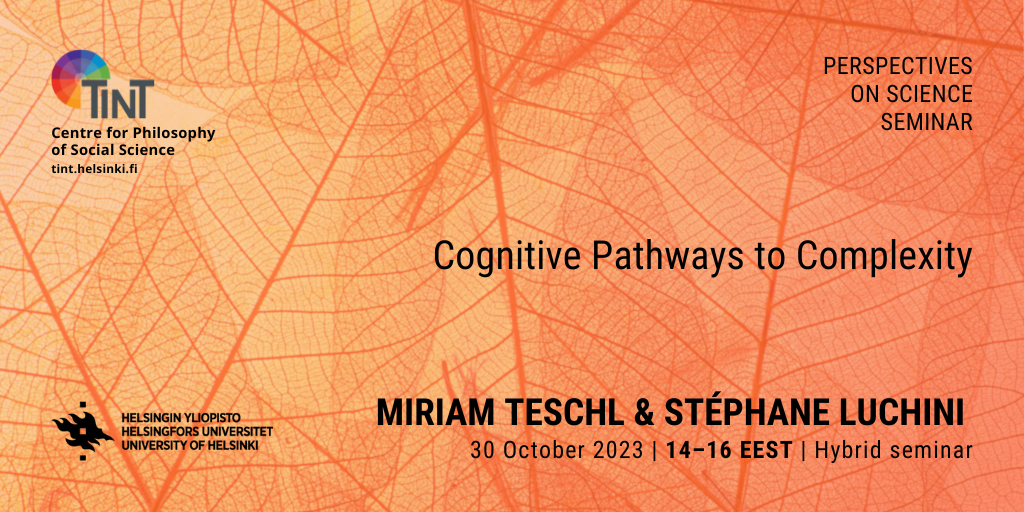
In the next Perspectives on Science seminar, Miriam Teschl (EHESS, Aix-Marseille School of Economics) and Stéphane Luchini (CNRS, Aix-Marseille School of Economics) will give a talk titled “Cognitive Pathways to Complexity“.
The seminar takes place in person at Metsätalo and online via Zoom from 14:15 to 15:45 on Monday the 30th of October 2023. To join the seminar, please contact jessica.north@helsinki.fi for the location or Zoom invitation.
Perspectives on Science is a weekly research seminar which brings together experts from science studies and philosophy of science. It is organized by TINT – Centre for Philosophy of Social Science at the University of Helsinki. More information about the seminar here.
Abstract:
What happens when we face complex situations, situations in which predictions are out of reach, at least without making untestable assumptions? Over the last few years, we have embarked into a journey on complexity, how we perceive it and can (or not) manage it. Our research involves interdisciplinary conceptual and experimental work with neuro-scientists, with whom we tested ideas with animals and humans, and applied some of these ideas to real world complex challenges (e.g. Covid-19). In the seminar, we will present this ongoing research and provide some elements about how our approach has changed our own way of “doing” (economic) science.
Author bios:
Miriam Teschl: originally studying economics, but then moving more and more towards philosophy and the social sciences, Miriam is now particularly interested in conceptual and epistemological questions, notably around notions such as effort, uncertainty, and complexity. She is also interested in issues of wellbeing and social justice, notably in the context of language learning and multilingualisme. She is associate professor at the Ecole des Hautes Etudes en Sciences Sociales, based at the Aix-Marseille School of Economics in France.
Stéphane Luchini: Stephane Luchini’s general interest is directed towards the understanding of human decision making and how institutions shape behaviour. His research is based on the use of questionnaires in surveys and on the study of behaviour in the lab, i.e. experimental economics. He has engaged over the years in interedisciplinary work with medical doctors, psychologists, sociologists and neuro-scientists His a research fellow at the Centre National de la Recherche Scientifique (CNRS) , based at the Aix-Marseille School of Economics in France.
